| Research: Index > The evolution and development of mind appeared from an examination of people, apes, and robots |
| Time in living creatures The evolution and development of mind appeared from an examination of people, apes, and robots |
|
|
|
|
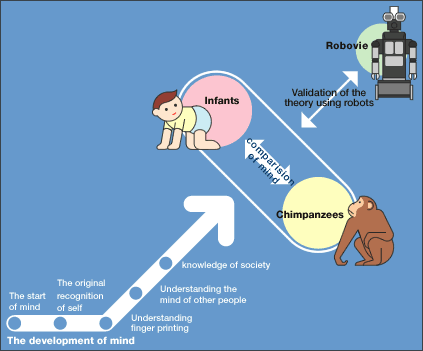 |
| We will conduct a comparison of the development of human and non-human infants. Then, we will conduct joint research with robotics engineers, and apply to robots the findings gained from research into chimpanzees and humans. We will then examine the validity of our theory. |
| Experiments with human children for mistaken belief topics using Robovie |
 |
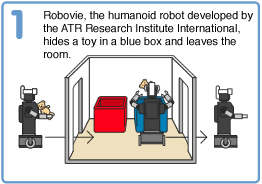 |
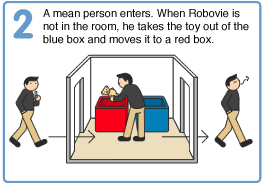 |
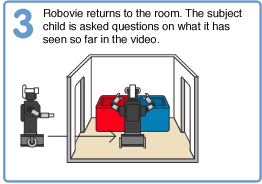 |
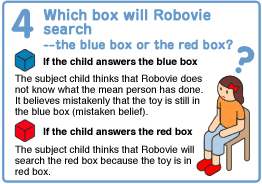 |
| The experiment shows that most five- and six-year-old children will answer the blue box. The mistaken belief topic evaluates whether the subject child has a theory of mind for understanding the psychological state of others, such as belief or intent. The five- or six-year-old child attributes mistaken belief to Robovie, and answers by making a quick supposition about the robot's mind. When answering the question, "What is the robot thinking?"--which includes a psychological verb--the child becomes confused and answers at random. |
|
||
|
|
Bacteria that measure time: Hideo Iwasaki | ||
| Rsearch |
|
Please close a window with the button of a browser who are turning off Javascript. |